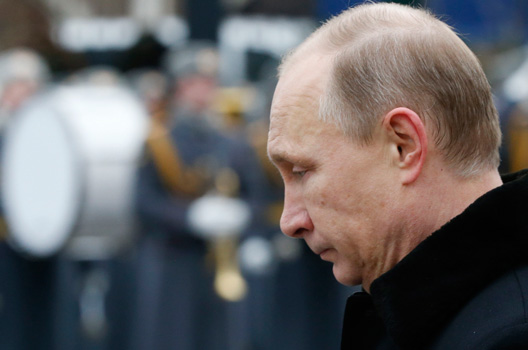
Atlantic Council analyst says US, NATO lack adequate nuclear deterrence policy
The United States and NATO lack an adequate nuclear deterrence policy even as Russia has put the nuclear option at the center of its national security strategy, according to Atlantic Council analyst Matthew Kroenig.
“NATO should strengthen its nuclear declaratory policy and develop new, more tailored nuclear capabilities to provide a credible response to a limited Russian nuclear strike,” Kroenig, a Nonresident Senior Fellow in the Atlantic Council’s Brent Scowcroft Center on International Security, said in an interview.
Kroenig testified on regional nuclear dynamics before the Senate Armed Services Committee’s Subcommittee on Strategic Forces on February 25.
Since the early 2000s, Russian strategists have promoted the idea of “de-escalatory” nuclear strikes, whereby “Moscow will threaten or, if necessary, carry out limited nuclear strikes early in a conventional conflict in order to force an opponent to sue for peace on terms favorable to Moscow,” Kroenig told lawmakers.
Moscow has taken several provocative steps as its relationship with the West has become strained over the conflict in Ukraine.
In September, Russian President Vladimir Putin announced plans to develop nuclear and conventional weapons to counter the United States and NATO.
The Russian military has also tested an intermediate range ground-launched cruise missile.
The missile launch is of particular concern because it violates Russia’s commitments under the 1987 Intermediate-Range Nuclear Forces (INF) Treaty, Kroenig told lawmakers.
Kroenig shared his thoughts in an e-mail interview with the New Atlanticist’s Ashish Kumar Sen. Excerpts below:
Q: Why would Russia be quick to rely on its nuclear weapons in a conventional conflict?
Kroenig: Russia has moved nuclear weapons to the center of its national security strategy to offset its conventional military inferiority in relation to the United States and Russia. It is essentially the reverse of the situation during the Cold War when NATO relied on nuclear retaliation to deter a conventionally superior Soviet Union.
Q: Given your concerns about Russia using nuclear weapons early in a conventional conflict, would the provision of lethal assistance to Ukraine’s security forces lead us into a situation where Russia would escalate the conflict and even consider using nuclear weapons?
Kroenig: Russia conceives of “de-escalatory” nuclear strikes in the event of a direct conventional war with NATO. It is hard to imagine the crisis in Ukraine escalating to that point, but, if Russia were to rerun its playbook of hybrid warfare against a NATO ally, the risk of nuclear escalation would certainly be present.
Q: The nuclear option is a central part of Russia’s strategy. Do the US and NATO have an adequate nuclear deterrence policy, and if not, what should they be doing to prepare one?
Kroenig: In my opinion, we do not. I argue that NATO should strengthen its nuclear declaratory policy and develop new, more tailored nuclear capabilities to provide a credible response to a limited Russian nuclear strike.
Q: What should the US be doing to reassure its regional allies — especially the Baltic States — who worry about the threat posed by Russia?
Kroenig: The most immediate threat to the Baltic States is posed by Russia’s model of hybrid warfare and, in my recent Survival article, I, therefore, recommend a number of changes to NATO strategy and posture. NATO’s first priority must be to design a workable defense around its existing members.
Q: Has the Ukraine crisis provided an opportunity for the US and NATO to take such steps, or has it made it more difficult because these measures would be viewed in Moscow as provocative and escalatory?
Kroenig: The crisis has not only provided an opportunity, but the major motivation. The European security environment has fundamentally changed in the past year and NATO strategy and posture must change with it. Russia’s redrawing the map of Europe at gunpoint and making explicit nuclear threats against NATO is provocative. NATO’s taking steps to defend itself in that context is anything but.
Q: Is there a willingness in the US and NATO to reverse their policies of reducing reliance on nuclear weapons?
Kroenig: People recognize that changes to NATO’s posture are necessary, but they shy away when the subject of nuclear weapons is broached. If an upgrade of our nuclear doctrine and capabilities is necessary to deter a Russian nuclear strike in a future contingency, as I suspect it is, then I hope we come around to that realization before it is too late.
Ashish Kumar Sen is a staff writer with the Atlantic Council.
Image: Russian President Vladimir Putin in September announced plans to develop nuclear and conventional weapons to counter the United States and NATO. (REUTERS/Sergei Karpukhin)
